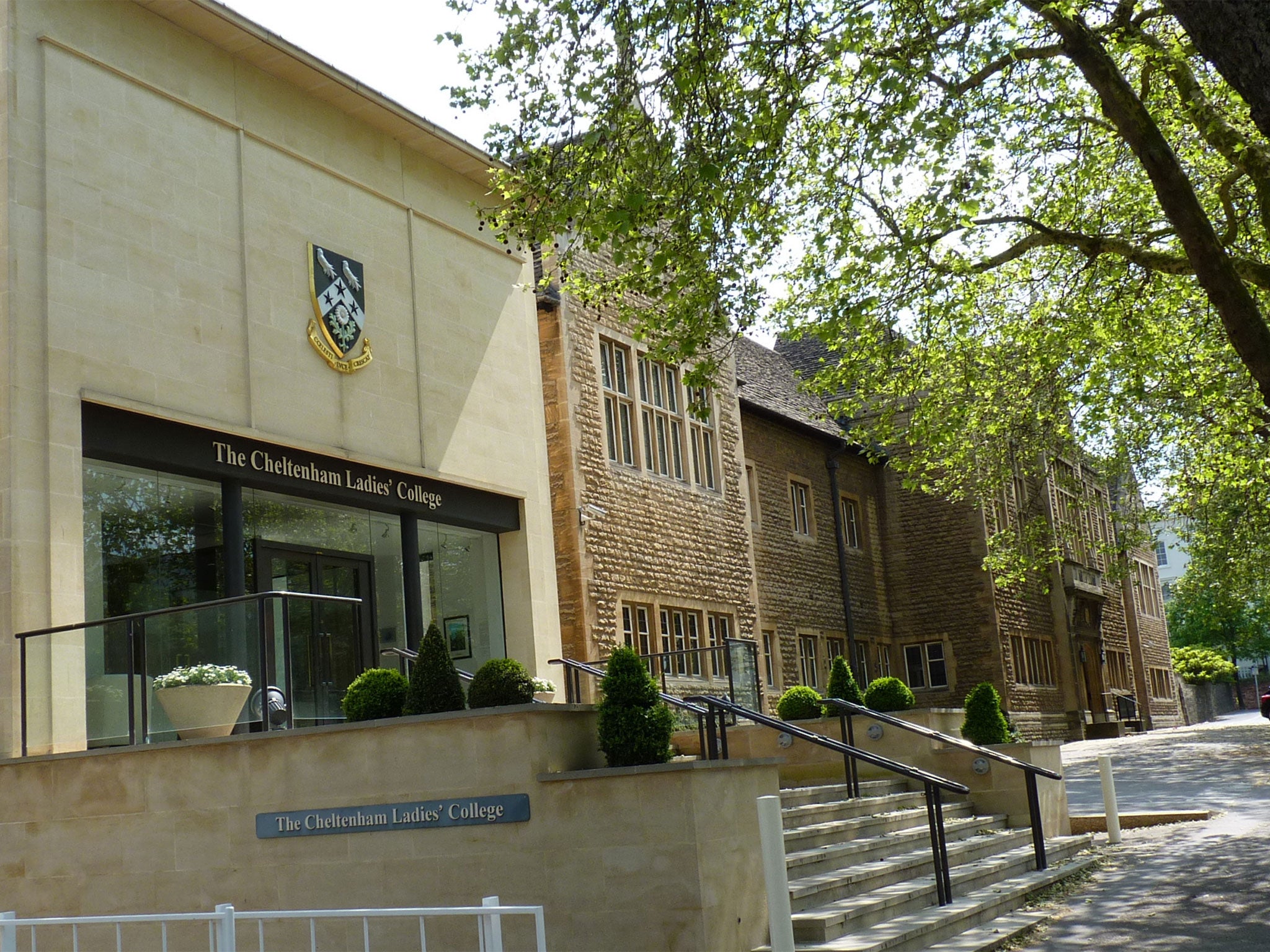Top independent school Cheltenham Ladies' College is considering getting rid of homework
The principal of the college said it is a response the growing issue of mental health amongst young people

Your support helps us to tell the story
From reproductive rights to climate change to Big Tech, The Independent is on the ground when the story is developing. Whether it's investigating the financials of Elon Musk's pro-Trump PAC or producing our latest documentary, 'The A Word', which shines a light on the American women fighting for reproductive rights, we know how important it is to parse out the facts from the messaging.
At such a critical moment in US history, we need reporters on the ground. Your donation allows us to keep sending journalists to speak to both sides of the story.
The Independent is trusted by Americans across the entire political spectrum. And unlike many other quality news outlets, we choose not to lock Americans out of our reporting and analysis with paywalls. We believe quality journalism should be available to everyone, paid for by those who can afford it.
Your support makes all the difference.Cheltenham Ladies' College, one of the country's most prestigious independent schools, is re-assessing its homework policy, in an effort to tackle the growing problem of depression and other mental health issues amongst young people.
The school, which charges £7,405 a term for day pupils and £11,030 a term for boarders, will undergo a five-year review on whether it should stop giving its pupils homework, The Times has reported.
Teachers at the school will be trained to spot signs of mental illness in pupils, and from September, students will be given twice as long to walk between their lessons. Currently, the girls have short lessons of around 25 minutes, and don't have long to make it to their other classes elsewhere on the school's large campus.
The school hopes that longer lessons, and more time to get between them, will stop the constant day-long rushing that causes stress to some pupils.
An age-appropriate programme of 'full wellbeing' will also be put in place, which will help pupils from the school's different age groups to cope with anxiety, stress and peer pressure, as well as teaching them practical life skills, such as managing their finances.
Mindfulness classes, a practice based on a form of meditation, will also be offered to older pupils, to help them combat stress.
A spokeswoman for the school said that homework will not be abolished any time soon, but said that they are looking into other ways that pupils can learn outside of the classroom, using methods that don't involve poring over books for long periods after school has finished for the day.
Eve Jardine-Young, Principal of the school, said that the proposed changes are a response to the rocketing levels of mental health issues amongst young people.
Last year, experts told the Health Select Committee that one child in every 10 has a mental health problem - meaning that around three children in every class have a diagnosable problem.
They warned that council budget cuts and a restructuring of the NHS have meant that vulnerable young people suffering from these conditions have been denied help that could have been dealt with more easily earlier.
Another report from The Times earlier this year showed that children in some parts of the country can wait up to three years to be assessed for mental health problems, and up to nearly two years to receive treatment.
The Cheltenham Ladies' College solution is a radical one, but efforts to minimise the amount of homework are happening in schools across the country.
Speaking to The Independent in 2013, the headteacher of Tiffin School, a top grammar school, said he had reduced homework to a maximum of 40 minutes a night - and he wishes he could abolish it altogether.
Malsis School, an independent primary school in North Yorkshire which closed down at the end of 2014, abolished homework in 2003, instead encouraging pupils to take part in after school clubs and activities.
Jardine-Young said that growing use of smartphones and other devices amongst pupils are also causing stresses from the outside world to impact on school life.
Join our commenting forum
Join thought-provoking conversations, follow other Independent readers and see their replies
Comments